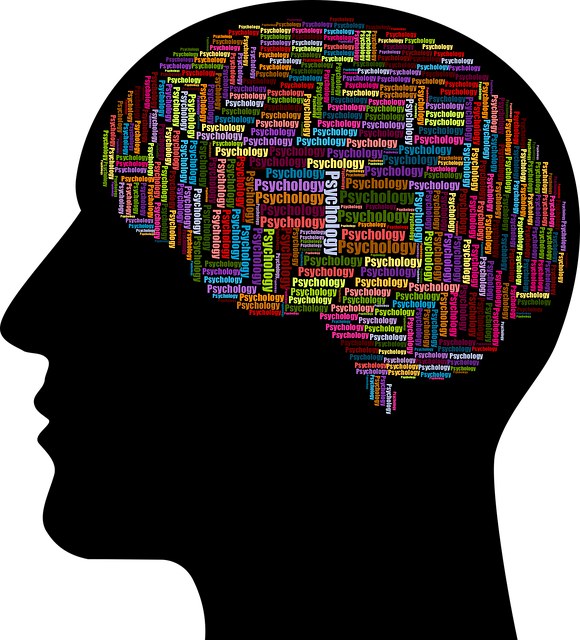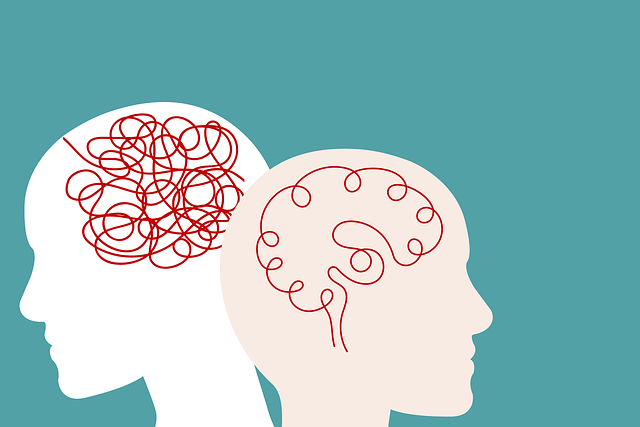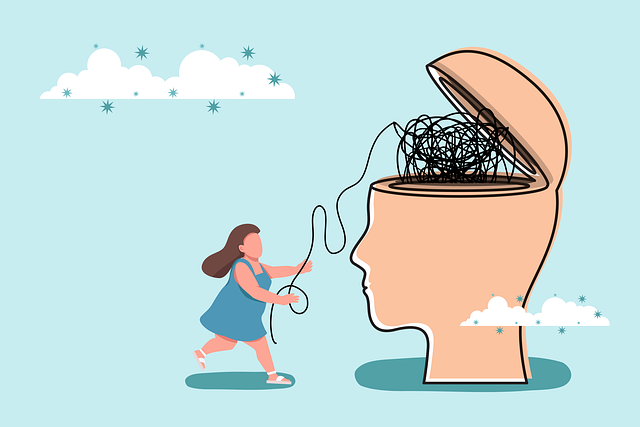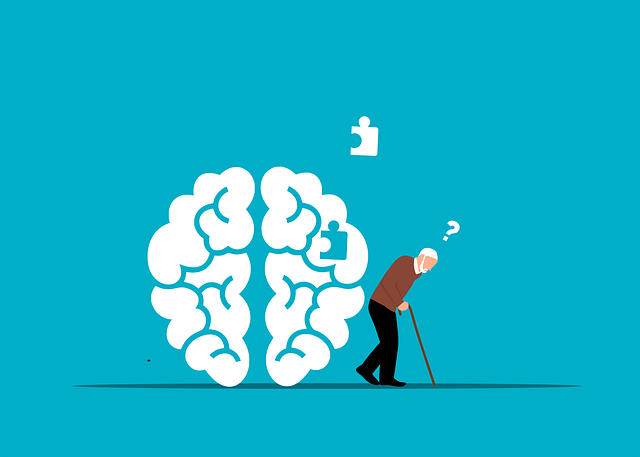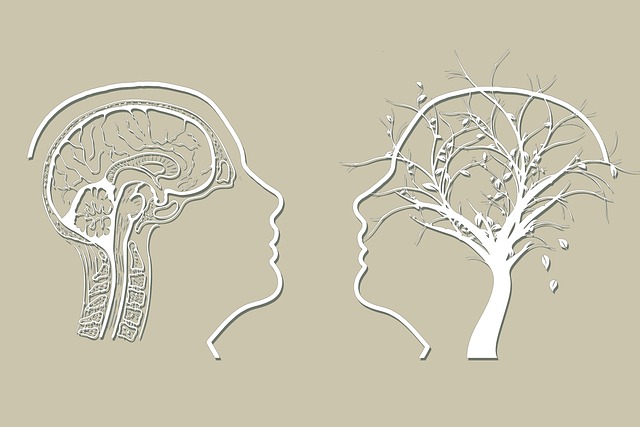Wheat Ridge Dissociative Disorder Therapy offers comprehensive care for managing symptoms through specialized trauma-focused programs, community education, and healthcare provider training. Using evidence-based techniques like CBT and mindfulness, therapists guide individuals in coping with detachment from reality and negative thought patterns. The holistic approach promotes resilience, reduces stigma, fosters connections, and prevents burnout, empowering clients to lead stable, fulfilling lives despite complex challenges.
Coping skills development is a vital aspect of managing dissociative disorder, a condition that can profoundly impact an individual’s daily life. This comprehensive guide explores effective strategies for navigating and overcoming the challenges posed by dissociative disorder. We delve into understanding the disorder’s root causes and its far-reaching effects, highlighting the transformative power of therapy in Wheat Ridge Dissociative Disorder Therapy. By identifying healthy coping mechanisms and learning to manage symptoms and triggers, individuals can build resilience and significantly enhance their quality of life.
- Understanding Dissociative Disorder and Its Impact
- The Role of Therapy in Coping Skills Development
- Identifying Healthy Coping Mechanisms
- Strategies for Managing Symptoms and Triggers
- Building Resilience and Enhancing Quality of Life
Understanding Dissociative Disorder and Its Impact

Dissociative Disorder (DD) is a complex mental health condition that often goes unrecognized, even among healthcare professionals. It’s characterized by a disconnection from reality and can manifest in various forms, such as depersonalization-derealization disorder or dissociative identity disorder (DID). Individuals living with DD may experience a sense of detachment from their thoughts, feelings, and surroundings, leading to symptoms like feeling like an outside observer of oneself or the world around them. This condition is not merely about forgetting or losing touch; it’s a profound alteration in one’s perception of reality and identity.
Wheat Ridge Dissociative Disorder Therapy plays a pivotal role in helping individuals manage their symptoms. Through specialized therapy approaches, such as trauma-focused care tailored to DD, patients can develop coping skills for the distressing experiences associated with their disorder. Community Outreach Programs and Healthcare Provider Cultural Competency Training are also essential components of addressing DD. By raising awareness and fostering understanding, these initiatives enable early identification and better support for those affected. Moreover, promoting positive thinking and resilience can be a game-changer in coping skill development, empowering individuals to navigate the challenges of DD with greater ease.
The Role of Therapy in Coping Skills Development

Therapy plays a pivotal role in coping skills development, offering individuals a safe and supportive space to explore their emotions and thoughts. Specifically, Wheat Ridge Dissociative Disorder Therapy focuses on empowering clients to manage symptoms and enhance overall well-being. Through structured sessions, trained therapists guide patients in identifying and challenging negative thought patterns, teaching them effective strategies for stress management and emotional regulation. This process not only facilitates anxiety relief but also fosters resilience, enabling individuals to navigate life’s challenges with greater ease.
Incorporating evidence-based techniques, such as cognitive behavioral therapy (CBT) and mindfulness practices, Wheat Ridge Dissociative Disorder Therapy goes beyond symptom reduction. It aims to cultivate self-awareness and promote healthy coping mechanisms, thereby reducing the impact of mental illness stigma. Additionally, social skills training is often integrated into the therapeutic framework, encouraging meaningful connections and fostering a sense of belonging, which are crucial for maintaining positive mental health.
Identifying Healthy Coping Mechanisms

Identifying Healthy Coping Mechanisms is a vital step in managing stress and promoting mental well-being, especially for individuals navigating conditions like Wheat Ridge Dissociative Disorder Therapy. Effective coping skills can prevent the onset of burnout, a common challenge faced by healthcare providers as they balance intense work demands with personal care. By adopting conflict resolution techniques and integrating Self-Care Routine Development for Better Mental Health into daily life, individuals can enhance their resilience. These strategies involve learning to recognize and express emotions healthily, engaging in activities that promote relaxation and joy, and cultivating strong social connections.
For those dealing with complex trauma or dissociative disorders, it’s crucial to explore diverse coping methods tailored to individual needs. Wheat Ridge Dissociative Disorder Therapy offers specialized support, encouraging clients to discover and utilize coping mechanisms that foster stability and growth. By combining evidence-based practices and personalized approaches, therapists help individuals develop Burnout Prevention Strategies for Healthcare Providers, ensuring they can navigate life’s challenges with greater ease and resilience.
Strategies for Managing Symptoms and Triggers

In managing symptoms and triggers associated with dissociative disorder, individuals can employ various strategies tailored to their unique needs. Wheat Ridge dissociative disorder therapy emphasizes a holistic approach, focusing on both cognitive and emotional aspects. Techniques such as mindfulness meditation and cognitive-behavioral therapy (CBT) help individuals develop emotional intelligence, enabling them to recognize and regulate their emotions effectively. By understanding triggers, whether they’re environmental cues or specific memories, individuals can proactively navigate situations that might induce dissociation.
Emotional well-being promotion techniques play a crucial role in burnout prevention. Through therapy, one learns coping skills like deep breathing exercises and grounding techniques to swiftly address heightened states of distress. These tools are instrumental in maintaining stability during challenging times, allowing individuals to manage symptoms and lead more fulfilling lives.
Building Resilience and Enhancing Quality of Life

Building resilience is a cornerstone of coping skills development, especially for individuals navigating complex conditions like dissociative disorder. Wheat Ridge Dissociative Disorder Therapy emphasizes the importance of fostering mental strength and adaptability to cope with life’s challenges. Through specialized techniques, clients learn to navigate traumatic experiences and enhance their emotional well-being. This involves understanding and managing dissociation, a common symptom, to promote stability and integration.
Mental health education programs designed with these principles in mind play a crucial role in building resilience. They equip individuals with effective coping strategies, Emotional Well-being Promotion Techniques, and tools for self-regulation. By integrating these practices into daily life, clients can improve their mental wellness and overall quality of life. This holistic approach not only addresses symptoms but empowers individuals to thrive despite adversity.
Coping skills development is a transformative process that can significantly improve individuals’ lives, especially those dealing with dissociative disorder. By understanding their condition and utilizing effective therapy methods, such as those offered by Wheat Ridge Dissociative Disorder Therapy, people can navigate symptoms and triggers successfully. Identifying healthy coping mechanisms and building resilience are key to enhancing one’s quality of life. This journey towards healing empowers individuals to take control and embrace a more balanced and fulfilling existence.


